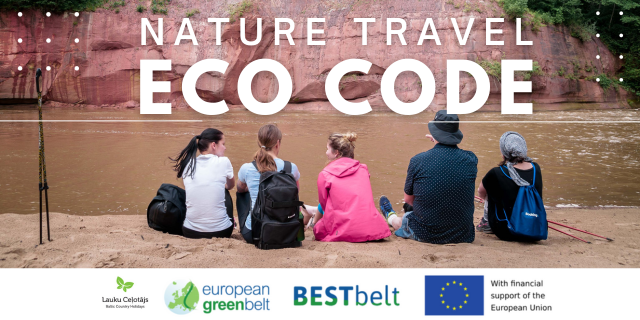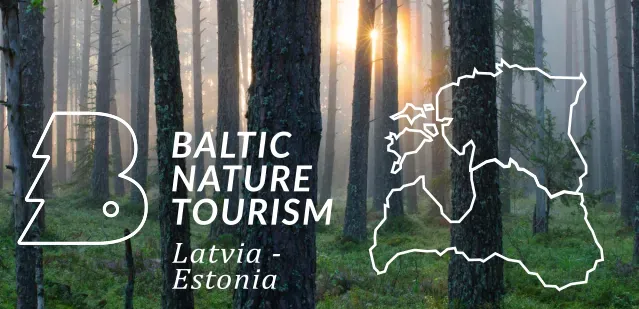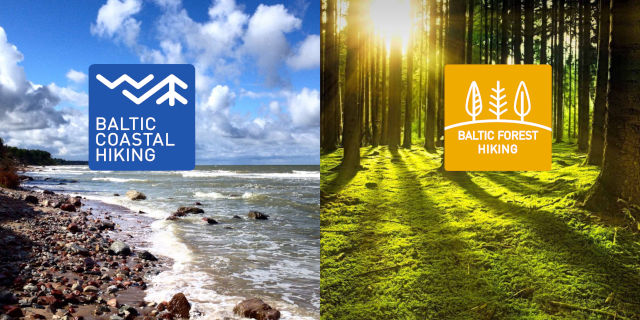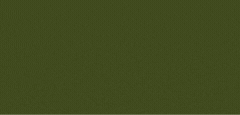Border guard in Kolka
Once a flock of us, kids, were splashing in water, and we did not notice that we had moved outside the designated swimming area. All of a sudden, a border guard on a horse came galloping towards us. I do not remember how it ended, probably he just sent us away. I was 10 years old. It all seemed so strange. Did not he see in his field glass that these were just kids playing? I remember this episode very clearly. It was in the end of the 1950-ies.
I was a kid and used to visit my grandfather in Kolka. I enjoyed it, and I experienced how we could not go swimming where we wanted. We could go swimming opposite the “Kristi” house. As a kid I could not understand how it was – the sea was there at hand, but we could not approach it, and the sand was harrowed. Once a flock of us, kids, were splashing in water, and we did not notice that we had moved outside the designated swimming area. All of a sudden, a border guard on a horse came galloping towards us. I do not remember how it ended, probably he just sent us away. I was 10 years old. It all seemed so strange. Did not he see in his field glass that these were just kids playing? I remember this episode very clearly. It was in the end of the 1950-ies.
Another thing I have in clear memory is how my grandparents were sending references to Riga, and the village council confirmed that there were no objections to my visit. There are different stories about these passes. What to do if you need to go unexpectedly, but you do not have your pass. You just took a risk. It took at least 10 days to get a pass. We knew where the border guard posts were. Before that place, we got off the bus and, either someone from Kolka in a horse-cart came for us or we walked through the forest. In the 1980-ies, it became a lot easier when relatives could get a pass valid for one year. In the 60-ies and 70-ies, it was only for three months.
If someone was caught without a pass, he was taken to zastav to peel potatoes. Also kids, if they went to the Cape Kolka on their own and were caught, had to peel potatoes. Right it is that the forbidden things are the most tempting, especially with youngsters.
I remember that first I went to the Kolka lighthouse in the middle of the 1950-ies. My grandfather was a fisherman, and during the Fishermen Festival, they were allowed to take people for a ride in their fishing boats. Since the 1970-ies, everyone could go to Kolka for the Fishermen festival. Certainly, you needed to have your passport at hand. Today this festival is far not as attractive as it was then. They were showing everything that was produced in Kolka. Different competitions took place related to the fish thing: mending fishnets, packing fish in cans, threading fish on skewers. Border guards and marines also came for the festival. There was some fighting, too, inspired by vodka. Sometimes the local men started fighting, and border guards went between to stop them. Soldiers usually did not start fighting because after that they were not allowed to come to the village for long time, not even to the shop. There was strict discipline.
The school had a very good cooperation with the border guard. There was young border guard interest group at school. Soldiers organised all kinds of games and training for them.
I did not understand at once, why they had built their military bases in Lielirbe and Lūžņa. These sites are opposite the Irbe strait. They fired with their canons across the strait, towards Saaremaa Island. From there, from the Cape Sõrve, they fired back. This way, the strait was under control and nobody could get through.
The army left very decently, without destroying anything, without conflicts, without leaving any waste. Later the locals did what they did.
Another thing I have in clear memory is how my grandparents were sending references to Riga, and the village council confirmed that there were no objections to my visit. There are different stories about these passes. What to do if you need to go unexpectedly, but you do not have your pass. You just took a risk. It took at least 10 days to get a pass. We knew where the border guard posts were. Before that place, we got off the bus and, either someone from Kolka in a horse-cart came for us or we walked through the forest. In the 1980-ies, it became a lot easier when relatives could get a pass valid for one year. In the 60-ies and 70-ies, it was only for three months.
If someone was caught without a pass, he was taken to zastav to peel potatoes. Also kids, if they went to the Cape Kolka on their own and were caught, had to peel potatoes. Right it is that the forbidden things are the most tempting, especially with youngsters.
I remember that first I went to the Kolka lighthouse in the middle of the 1950-ies. My grandfather was a fisherman, and during the Fishermen Festival, they were allowed to take people for a ride in their fishing boats. Since the 1970-ies, everyone could go to Kolka for the Fishermen festival. Certainly, you needed to have your passport at hand. Today this festival is far not as attractive as it was then. They were showing everything that was produced in Kolka. Different competitions took place related to the fish thing: mending fishnets, packing fish in cans, threading fish on skewers. Border guards and marines also came for the festival. There was some fighting, too, inspired by vodka. Sometimes the local men started fighting, and border guards went between to stop them. Soldiers usually did not start fighting because after that they were not allowed to come to the village for long time, not even to the shop. There was strict discipline.
The school had a very good cooperation with the border guard. There was young border guard interest group at school. Soldiers organised all kinds of games and training for them.
I did not understand at once, why they had built their military bases in Lielirbe and Lūžņa. These sites are opposite the Irbe strait. They fired with their canons across the strait, towards Saaremaa Island. From there, from the Cape Sõrve, they fired back. This way, the strait was under control and nobody could get through.
The army left very decently, without destroying anything, without conflicts, without leaving any waste. Later the locals did what they did.
| Tourism objects involved in this story | ||
|---|---|---|
Obwohl heutzutage das Kap Kolka für alle Interessenten und Touristen zugänglich ist, funktioniert der Grenzwacheposten immer noch und ist für die Zivilpersonen nicht zugänglich. |
||









